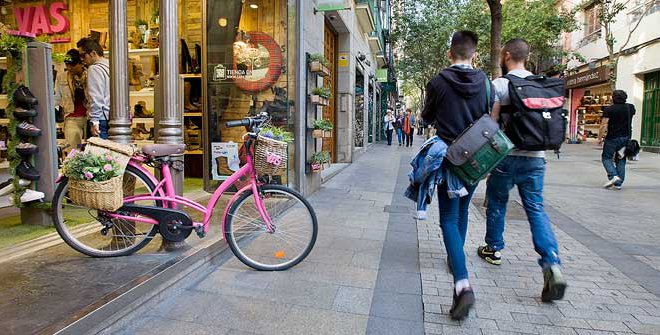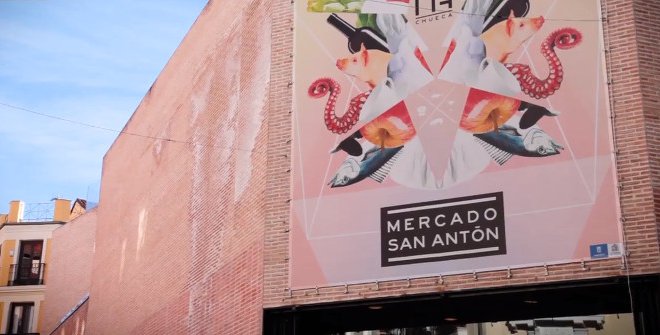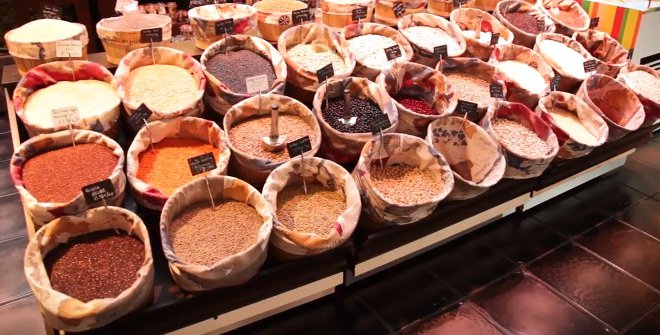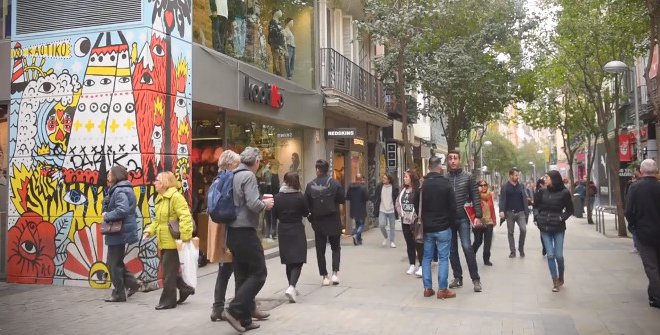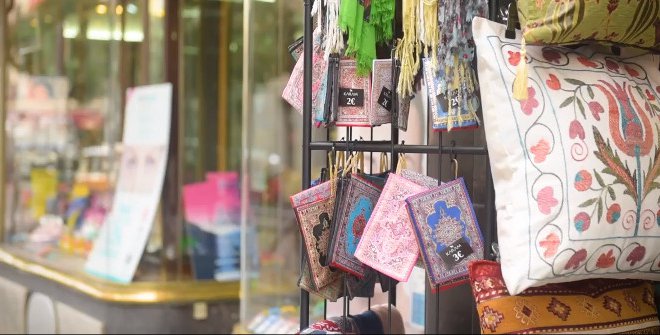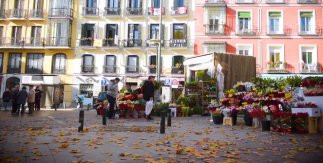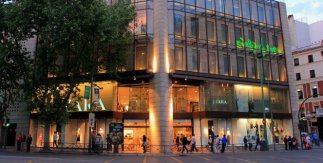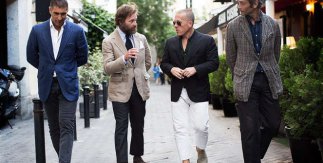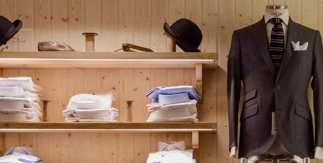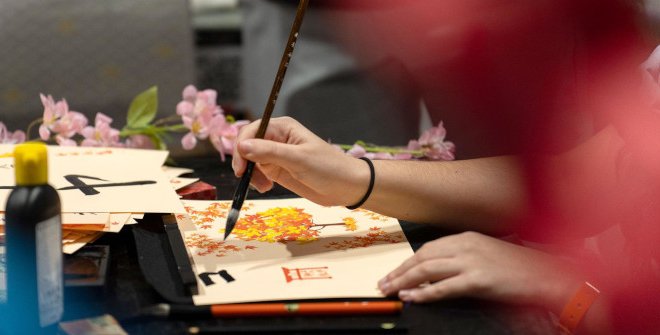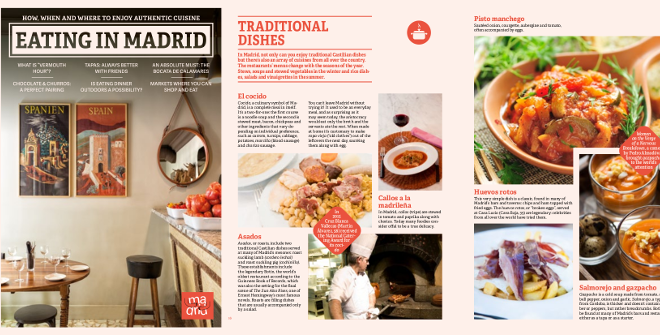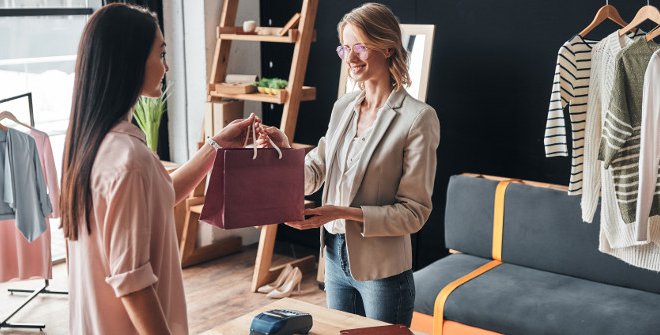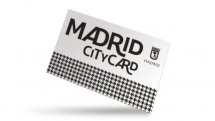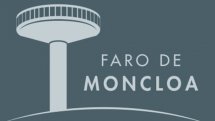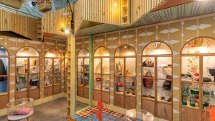Shopping: Chueca-Malasaña-Fuencarral
The districts of Chueca and Malasaña, along with the axis along Fuencarral Street, make a shopping area where you’ll find lots of fashionable brands, emerging designers, tattoo parlours, interior design shops, bookshops to buy comic, art, rare or second-hand books, and vintage objects.
The area bounded by Plaza de Chueca, Calle Fuencarral and Calle Hortaleza is a map of quiet alleyways brimming with shopping activity. A nerve centre of the gay scene, the area has also opened up to other communities and trends, to become a favourite with both locals and out-of-towners.
Hortaleza is the right thoroughfare for members of the LGBTIQA+ community, as it houses a high number of fashion boutiques, gyms, sex shops and bookshops specialising in LGBTI issues, like the pioneering Berkana, in comic and illustrated books, like Panta Rhei, or in cookbooks, like A Punto, which also offers cooking classes.
Along and around Calle de Augusto Figueroa, there’s a good number of shops where you’ll find display shoes from past seasons at attractive prices. In Chueca, the Ana Locking, Devota & Lomba or Juan Vidal stores can also be highlighted.
In Malasaña, the main shopping street is Fuencarral to the east, bordering on Chueca. This pedestrian thoroughfare is lined with top brand shops selling sportswear – New Balance Fuencarral, Puma, Foot Locker, Quiksilver –, jeans – Levi’s, Diesel Store, Calvin Klein –, and trendy clothes and accessories – Aristocrazy, Victoria’s Secret, Maje, Adolfo Domínguez, Guess, Tezenis, Calzedonia, Ese o Ese, Hilfiger Denim Store, Desigual, El Ganso, and many others.
Malasaña is one of the districts where alternative cultures thrive in Madrid. You’ll find urban tribe outfits, tattoo parlours, vintage stores to buy 1960s, 1970s and 1980s originals or replicas like El Templo de Susu, Popland or Luciérnaga Concept Boutique … There’s even a vintage fashion boutique for children aged 0 to 6, Mon Petit Retro. Comic shops such as Generación X, Atom Cómics, Crisis Cómics or Otaku Center are also abundant in the area.
In the 1980s, Malasaña was the nerve centre of the so-called ‘movida madrileña’, a cultural revolution involving artists, musicians, writers and filmmakers. The legendary ‘movida’ atmosphere can still be felt in this district, where the sentimental can still spot their favourite leather jacket on display in a shop window…Check out Lady Cacahuete, a 100% Spanish women's clothing store inspired by 1950s fashion and rockabilly.
Traditional shops are well represented by Antigua Casa Crespo, a haven for handmade espadrille seekers (espadrilles are the typical summer footwear in Spain), or by Fernando Solar’s musical instrument workshop.
Not far from Malasaña there’s the so-called Triángulo de Ballesta, aka Triball, bounded by Calle de la Ballesta, Calle de Valverde, Calle del Desengaño, Corredera Baja de San Pablo, Calle del Barco and Plaza de Santa María de Soledad Torres Acosta (aka Plaza de la Luna). This triangular area (hence the name) has become a vibrant cultural and social hub.
Here you can buy clothes and accessories – Deffort Store, Monkey Garden –, special headwear by Carlos Castro or even made-to-measure bridal fashion by Miguel Crespí. It is also worth mentioning the Eduardo Rivera clothing, decoration and accessories store, the Colour Nude store — pour acheter des robes de soirée et autres occasions spéciales e —and the popular Jimmy Lion sock brand.
Le quartier de Chueca abrite la Maison Mesa, la première boutique dans le centre de Madrid du créateur madrilène Juan Carlos Mesa, qui évolue dans le monde de la mode et du stylisme depuis les années 1990.
Culinary shopping
The area is also famous for its food markets, where you can get local produce or go out for tapas. Barceló Market offers outdoor tables for a meal al fresco, while San Ildefonso Market includes several international cuisine stalls. There’s San Antón Market too, if you’re looking for organic food.
For visitors with a sweet tooth, we recommend three bakeries: Celicioso (gluten-free treats) and Horno San Onofre (two stores in the area, popular for their Twelfth Night Bread). Pastelería Diadema has been in Malasaña for more than 30 years and its specialities include King’s cake, carrot cake, croissants and even pasties. It’s also well worth taking a trip to the Harina gourmet shop, Spicy Yuli, a tea and spice shop, and Greek and Shop, a Greek grocery store-bar.
And if you need a good book to accompany your pastry and coffee with, head for Librería Pérez Galdós or Cervantes y Compañía.
DON’T MISS
Flowers, handicrafts and gastronomy from all over the world, bookshops-cafeterias, a revamped neighbourhood market and a street market, El Rastro, dates back almost 300 years.
On your way to the Temple of Debod and Faro de Moncloa, you can stop in this area for a little shopping. There are shops for all budgets and tastes.
A refined environment with exclusive shops, where haute couture and men’s wear are the order of the day.
One of the posh districts of Madrid, for visitors with a strong personality, offering taste without unnecessary luxury.
